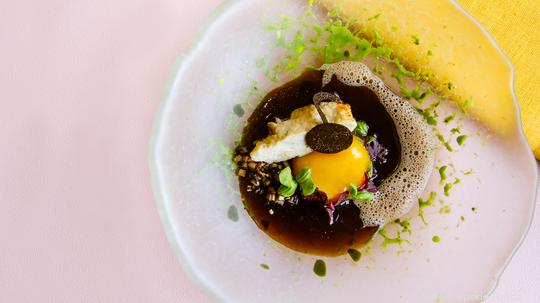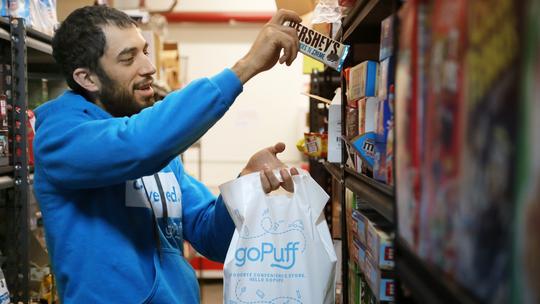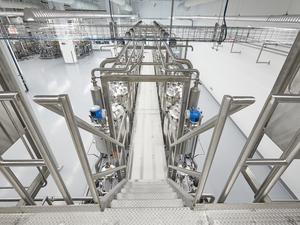
Food delivery was hot in 2020 while most consumers were stuck at home, and the plant-based alternative protein world has gained momentum over the past few years. But are these foodtech industries still cooking with fire in 2022?
It's a mixed bag. Venture capitalists pulled back on funding and deal flow during the second quarter, according to a new report on the state of foodtech from PitchBook.
Firms invested $5.6 billion globally across 275 deals, representing a 22% drop in funding and 33% drop in the number of deals compared with the first quarter.
However, in the 12 months ending June 30, total value of deals increased more than 22% and number of deals increased 7%. Pre-money valuations and median deal sizes also increased.
Pre-money valuations reached $24.6 million in 2022, up 55.7% year-over-year. Overall median deal sizes reached $3.7 million, up 25.8% year-over-year.
"Rising valuations and deal sizes contrasted with declining deal counts, indicating that investors are hedging market risk by concentrating deals into fewer yet larger deals," the PitchBook report noted.
So, where are venture capital firms concentrating their investments? Online delivery and ghost kitchens, the report says.
The largest foodtech deal went to Philadelphia-based online grocer Gopuff, which entered the Bay Area with its purchase of BevMo. It raised a $1.5 billion round that reportedly valued the company as high as $40 billion, Axios reported at the end of 2021.
In the Bay Area, alternative seafood producer Current Foods raised the top angel or seed round with $18 million in June from investors led by GreatPoint Ventures, Union Grove Venture Partners and Electric Feel Ventures.
Food-related software and delivery has been consolidating a bit, but there's still a lot of competition in the alternative protein space, Po Bronson, the managing director of SOSV's IndieBio accelerator, told me via email. He added that "it's been surprising that there hasn't been more M&A or aggregation generally. As valuations settle, I do think we will see later stage companies acquiring early stage ones."
Get ready to see so-called whole cut plant-based meats hit the market soon, and cell-cultured meat is picking up steam, as well, Bronson said, and there's also new technology emerging around non-GMO crop genetics and soil enhancement for agriculture.
The recent investor pullback on foodtech might also be related to a general increase in investments in climate-related companies.
"We think of foodtech as a subsector of our climate tech," Bronson told me. "In climate tech, food was a strong early thesis because everyone cares about what they eat and consumers can vote with their dollars. So, to some extent, we are seeing food investors now expand across into other sectors of climate tech, as those markets, such as new materials, have matured."
Here are some of the top foodtech deals of the second quarter, according to PitchBook:

Biggest Q2 foodtech angel and seed rounds
- Current Foods (S.F.), plant-based seafood protein: $18 million
- Bite Ninja (Memphis), restaurant staffing: $16 million
- Imagindairy (Israel), cow dairy without the cows: $13 million
- Tomorrow Farms (New York), cow dairy without the cows: $8.5 million
- Brevel (Israel), micro-algae protein: $8.4 million
- Trendi (Canada), robotics: $6.6 million
- Ark Biotech (New York), cell-cultured protein: $6 million
- Last Crumb (Los Angeles), direct-to-consumer cookies: $5.8 million
- Mikuna (Santa Barbara), plant-based protein: $5.6 million
- Melt&Marble (Sweden), alternative plant-based fats: $5.4 million

Biggest Q2 foodtech early-stage rounds
- Wonder (New York), ghost kitchens: $350 million
- Jüsto (Mexico), online grocery: $152 million
- Chocho (Germany), restaurant grocery supplier: $111 million
- Astro (Indonesia), online grocery: $60 million
- Faeth (SF), personalized nutrition and health: $47 million
- Yummy (SF), food delivery: $47 million
- Eclipse (Oakland), plant-based dairy: $40 million
- HappyVore (France), plant-based protein: $37.2 million
- Dastgyr (Pakistan), online grocery: $37 million
- Love Life! (Austin), online food marketplace: $31 million

Biggest Q2 foodtech late-stage rounds
- Gopuff (Philadelphia), online grocery: $1.5 billion
- Kitopi (Dubai), ghost kitchens: $715 million
- Upside Foods (Berkeley), cell-cultured protein: $400 million
- Zepto (India), online grocery: $200 million
- Ninjacart (India), online grocery: $154 million
- Country Delight (India), online grocery: $108 million
- Cirkul (Tampa), consumer beverages: $70 million
- Curefoods (India), ghost kitchens: $50 million
- Lemnature AquaFarms (Florida), plant-based aquatic protein: $38.7 million
- Levels (New York), personalized nutrition and health: $38 million








